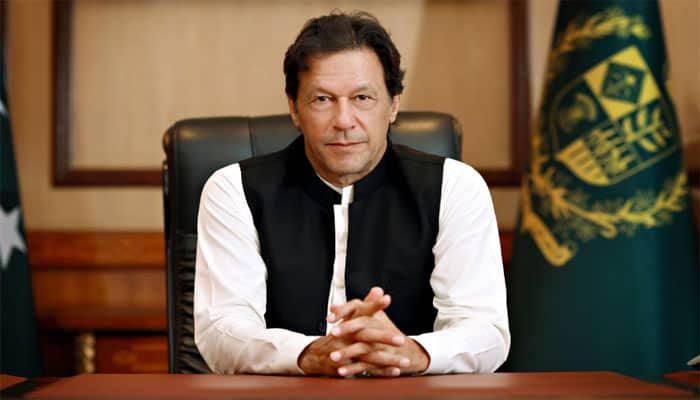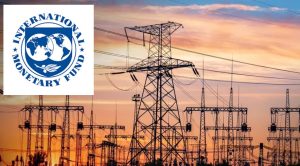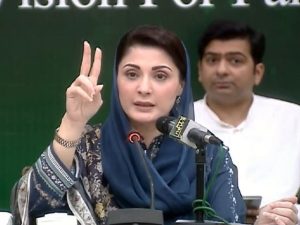ISLAMABAD – Prime Minister Imran Khan Thursday assured the business community of a changed culture in near future and stressed that the policies to promote wealth creation and to facilitate business were inevitable for poverty alleviation and self-dependence.
Addressing the Pakistan Economic Forum, organized by the Pakistan Business Council, the prime minister said the government would conduct fundamental reforms to restructure the economy and strengthen the domestic industry.
He said being a resource-rich country Pakistan had great potential for investment but the tax regime in vogue and the prevailing mindset to discourage wealth creation were major impediments to economic uplift of the country.
He said his government had decided to establish exclusive offices to handle the issues related to ease of doing business and poverty alleviation at the PM Office and committed for a frequent interaction with the business community to take their input and to know the impact of the government policies.
The prime minister said that for the first time reforms were being brought in taxation system where tax collection and tax policy wings had been separated in FBR.
Citing the examples of Malaysia and Singapore in increasing their exports to $330 billion and $220 billion respectively, the Prime Minister said the government would create easiness for the business community and provide a level playing field to increase the country’s exports.
He said the Board of Investment (BOI) would be serving as an agent of change for facilitating business transactions, removing impediments in a way to the materialization of investors’ interest into actual investments and smooth functioning of the businesses in the country.
The prime minister viewed that the geo-strategic position, China Pakistan Economic Corridor, over 120 million young population of around 35 years age and government’s commitment to eliminate corruption were the factors to attract foreign investors to the country.
He told the audience that the government was going tough on money laundering and smuggling as it had a bad impact on deindustrialization in Pakistan, adding that the government was also encouraging the overseas Pakistanis to send their remittances through banking channels.
He said China succeeded to steer around 700 million people out of poverty just by allowing the wealth creation. Even, he also learned the same policies from Malaysian Prime Minister Mahathir Mohamad and Sheikh Mohammed of the United Arab Emirates (UAE).
Minister for Finance Asad Umar in response to various demands and suggestions of the business community said that 80 to 90 percent of their suggestions had been covered in policy documents of the government and assured them all out support of the government in facilitating their businesses.
He, however, urged the business community to come forward and compete in the world markets as a lot had been changed in the world of business. He said there was no dearth of talent in Pakistani businessmen of world-class entrepreneurs and professionals.
The minister said both the government and private sectors worked in unison and expressed his confidence that Pakistan would be a growth story during the next decade.
Earlier, the representatives of the business community in their suggestions urged the government to approach industrialization in a planned manner by expanding its product range for pursuing export diversification.
Blocking the deindustrialization, they called for making more, grow more and create more in Pakistan, adding there was a dire need for fundamental reforms to strengthen domestic industry. The business representatives said a strong Small and Medium Enterprises(SMEs) sector was need of the hour as it could be a part of the supply chain.
They said the government was taking immediate measures to sustain economic growth, policy reforms were going to deliver, but this momentum needed to be continued at a fast track to achieving the results.
They called for bringing reforms in the tax system, broaden tax net, create a policy for increasing exports, round the clock power and gas supply to the industrial sector and more incentives to the manufacturers and export sectors to increase their products to bring foreign remittances to Pakistan.













